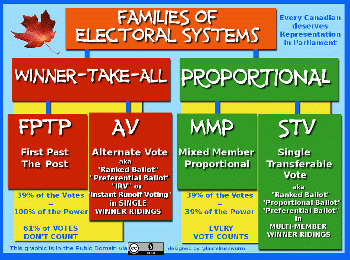A panel discussion I heard recently turned at one point to the issue of proportional representation. Among the three participants there was unanimous agreement that proportional representation was a great alternative simply because it promises to put an end to the two-party system and the intense partisanship it breeds. Apparently, that has been the lived experience in several European countries that have adopted proportional representation.
I was struck by these comments because this outcome is so much what I would also expect of balanced-approval voting. Proportional representation, where legislative bodies are filled in proportion to the votes a party gets, to be an appealing alternative approach for avoiding the polarization that infects our politics.
When there are two paths to a destination we generally take into account which seems the easier one so we deal with that issue next.
Recalling an early article in this series, our first president foresaw the polarization such as is now so familiar and to avoid this he warned against allowing political parties to form. That impractical advice was promptly ignored, however, and today we better appreciate what Washington was warning against.
But in the U.S., despite the special treatment given the largest political parties, at least we have not enshrined political parties with a formal presence in government. We are aware of the big role parties play, but when it seems convenient, we still choose to think of political parties as private organizations and not in the government. In contrast, the parliamentary systems common in Europe place political parties front and center. Voters go to the polls to choose the ruling party, whereas in the USA voters go to vote for particular individuals to assume specific offices. This makes proportional representation an easy and natural modification to a parliamentary system. However, adopting our complex federal-government structure to proportional representation would seem to be quite a challenge.
While state-by-state adoption of an improved voting system will surely take time, it really presents no constitutional complexities; it requires no significant changes to the operational structure of the government.
But from the opposite standpoint, there is nothing to keep a parliamentary system from also taking advantage of an improved voting system. Though there may seem less of a need for it, the change could improve the sampling of voter opinion and that could well contribute to more favorable opinion and support of the government. There is no need to choose only one of the two paths. Balanced-approval voting, for example, is surely compatible with proportional representation.






